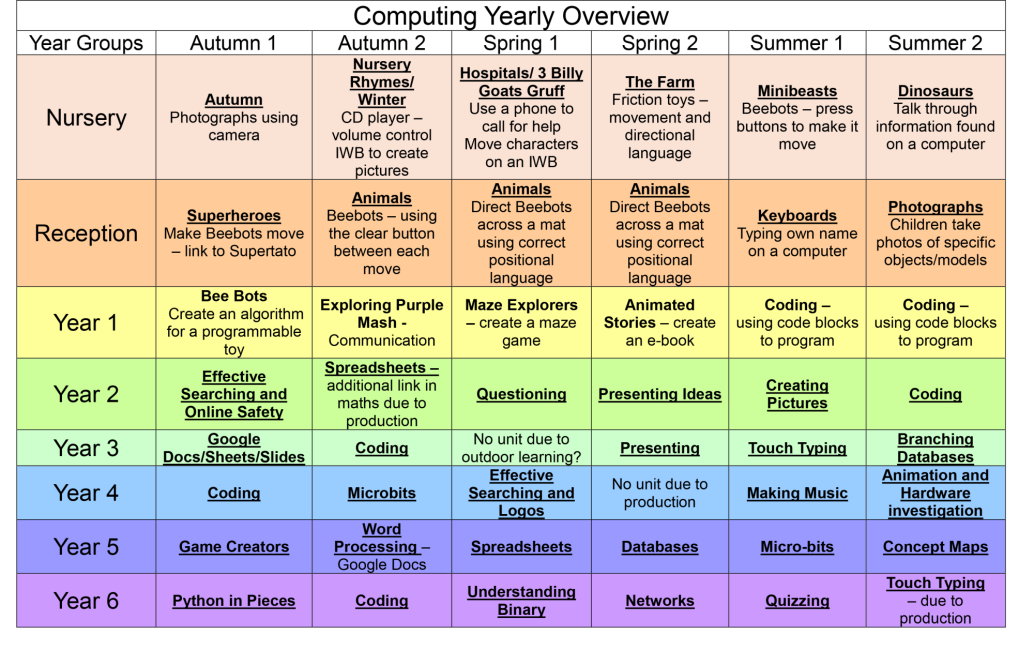Computing
Computing at Whiteknights equips pupils with the knowledge, skills, and confidence to thrive in a digital world. From coding and problem-solving to online safety and digital creativity, our curriculum builds progressively across the school. Pupils apply their skills through hands-on projects and real-world contexts, becoming responsible, resilient, and innovative users of technology. By the time they leave, they are well-prepared for the future, both academically and socially.

Computing Whole School Overview
Intent
-
All pupils make strong progress in Computing, developing confidence and creativity alongside rigour.
-
The curriculum covers three key strands: Computer Science, Information Technology, and Digital Literacy.
-
Pupils learn how digital systems work, how they are designed and programmed, and how to use technology to solve problems.
-
Children become digitally literate, confident, and responsible users of technology, prepared for the future workplace and life in a digital world.
-
Online safety is taught explicitly at the start of every term, ensuring pupils know how to use the internet safely and responsibly.
-
The curriculum is inclusive, with adaptations to close gaps for disadvantaged pupils and to ensure all can “Grow in Greatness.”
-
Pupils learn about significant people in computing and how technology has shaped the modern world.
-
Enrichment, visits, and links with local partners provide real-world context and inspire pupils’ learning.
-
Computing also supports personal development, including collaboration, communication, respect for diversity, and preparation for life in modern Britain.
Implementation
-
A structured programme (Purple Mash) ensures progression across all year groups.
-
Lessons are carefully planned with clear success criteria, modelling, questioning, and assessment for learning.
-
Pupils use exercise books and the school intranet to record and reflect on progress.
-
Teachers ensure computing links deeply with mathematics, science, and design technology.
-
Assessment is ongoing through questioning, self-assessment, and unit outcomes, with moderation across the school.
-
Feedback is clear, timely, and focused on addressing misconceptions and deepening understanding.
-
Enrichment includes trips, expert visitors, and partnerships with local schools and Reading University to strengthen practical and cultural knowledge.
Impact
-
Pupils develop secure knowledge, skills, and vocabulary in computing, showing strong progress across all strands.
-
They can confidently write and test programs, use logical reasoning, and solve problems through algorithms and coding.
-
Pupils use technology to create, analyse, and present information effectively.
-
Children know how to stay safe online and act responsibly in digital spaces.
-
Work in books and digital portfolios shows progression, independence, and pride.
-
Pupils are motivated, engaged, and confident to access the next stage of education and future opportunities in a digital world.
-
The curriculum develops resilient, collaborative learners who respect diversity and understand the role of technology in society.
